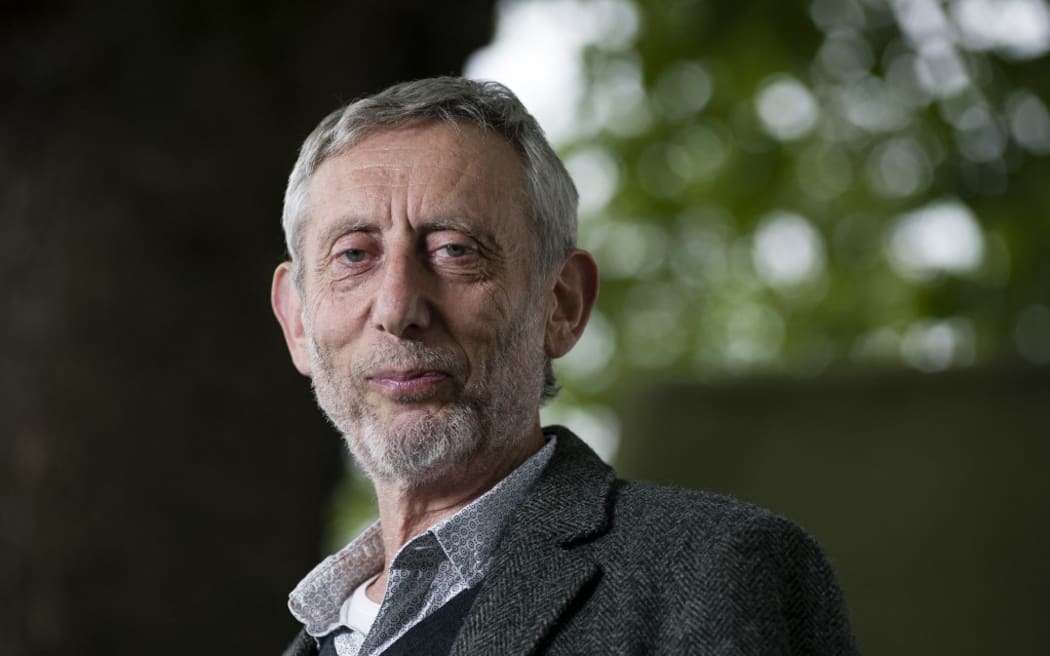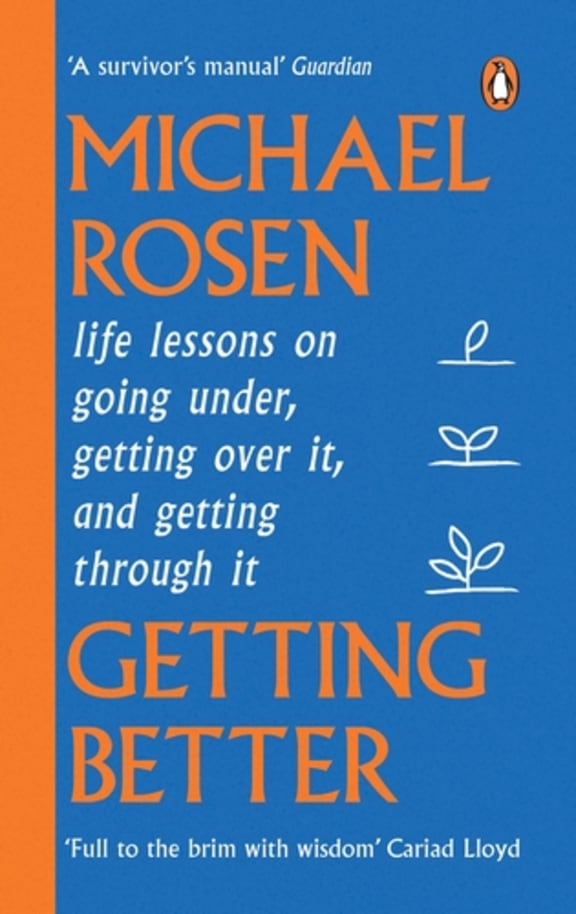"Passionate linguist, gifted humanist, national treasure and ambassador of gibberish" is a judge's description of this year's PEN Pinter prize winner, Michael Rosen.
The British poet, author and performer has written more than 200 books, including Sad Book, which chronicles Rosen's grief over the loss of his son Eddie, and children's classic We're Going on a Bear Hunt.
That book inspired the Covid lockdown teddy bear hunt - which saw bears appearing in windows, ready to be spotted by children out walking.
Rosen was unaware of all of this however, as he was in intensive care with severe Covid.

Photo: GUILLEM LOPEZ
His memoir Getting Better explores his experiences of trauma and grief and how to live in the aftermath of tragedy.
Covid has left him with some permanent damage, he tells Kim Hill.
“I had microbleeds in my brain which knocked out most of the sight of my left eye, and most of the hearing in my left ear, I have to say that carefully, I sometimes end up saying most of the hearing in my left eye and sight in my left ear.
“Because one of the other features of post Covid is you can get a bit muddled. When I said that to a child, I said I lost most of the sight from my left ear. She said; ‘No, you wouldn't have!’ she was quite cross about that.”
Rosen often takes to Twitter (now X) to spar with anti-vaxxers and Covid deniers, he feels it a duty, he says.
“Because there is this extraordinary thing, we've seen various people on television saying things like, well, I don't know anybody who suffered from Covid, so, I don't believe in it. I always feel like saying, well you perhaps have never met anyone who was murdered. So, what? Do you believe that no one is murdered?”
He remains outraged at the UK government’s handling of the epidemic, he says.
“That's in a way more damaging than anything else. I mean, if you look very closely, the wording from the notebooks of Patrick Vallance, who was the key government scientist at the time, he was jotting down what people like Boris Johnson and our present Prime Minister Rishi Sunak was saying. And they were saying things like, if people died, that's okay, let the bodies pile high.”
It's a “very strange mixture” of logic, he says.
“Between the people that Dickens was criticising with A Christmas Carol, namely the people inspired by the philosophy of Malthus that if only you could have fewer people, you wouldn't have any poverty.
“And on the other hand, the philosophy of somebody like Calvin, from much earlier, who thought that we're all predestined to be either saved or not saved or live or not live.
“And so, we've got a horrible mixture between Malthus and Calvin determining our lives.”
His book Getting Better was the first time he’d written about the death of his son in an extended way, he says. Eddie died suddenly after contracting meningococcal septicaemia.
“As the years have gone by, I sort of felt that I had to make this longer narrative, a logical narrative, that we're used to doing when we write stories, or when we write a piece of nonfiction, in a newspaper, or even a whole book, and so on.
“And so, I felt I needed to do that, in order to put it, in a way it puts it to bed, I don't mean you kill it off, which causes not a very nice metaphor to be talking about that.
“But it is a way of resting it, putting it to sleep in a comforting way.”

Photo: Penguin Books
A recent encounter with a woman at a reading he gave brought back memories of Eddie with a jolt, Rosen says. The woman, a classmate of Eddie, showed him a photograph.
“Eddie is sitting there on the top step and showing the soles of his shoes, he did very eccentric, funny things. And I think the soles of his shoes had some funny things on them, or they were different colours or something.
“And he had a little look on his face as if saying, ‘Hey, this is going to be fun’. And I remembered that look, suddenly, I think I'd almost forgotten that look on his face.
“And it just got me, I mean, it went straight to my guts in a way that I really wasn't expecting.”
After Eddie’s death, Rosen met Emma, his now wife, with whom he has had two children. It helped him carry on, he says.
“That was something very particular and lucky that happened in my life. And of course, some of those feelings that I had for Eddie, for the lost one, obviously, in a way, it's not that you transfer them across to the new children, but the new children are so absorbing that yes, I'm sorry about this Eddie if he's in the room with me now, but there were times when I was so absorbed with these new children that you were, in a sense, pushed to one side, I have to admit that.”
While the world was in lockdown, and Rosen was fighting for his life in a London hospital, people around the world started to put teddy bears in windows for children to spot inspired by his We’re Going on a Bear Hunt.
Rosen who was in a coma, was oblivious to all this, he says. And since his recovery the memory is still not quite what it was.
“You don't come out of a coma, what happens is that you go through various stages in which you are 90 percent unconscious, 80 percent unconscious, 50 percent, 30 percent … so you taper into consciousness.
“When did I realise that people have put teddy bears in windows? Well, I probably “realised” the moment the first person told me, the only problem is, the next day, I would have forgotten.”
His memory is now much improved, he says, and he’s making further demands on it by learning a new language.
“Yiddish is the language that Jews who lived in Eastern Europe or still do, there are still a few, many live outside of Eastern European in America, Britain, France and Israel.
“That language, Yiddish, was the language of my grandparents, great grandparents, and to a certain extent of my parents.
“And I'm stealing a joke now, I want to be able to talk to them. And I thought, well, I'll turn the little words, the little collection ragbag of words and phrases that I know into a way of speaking it.”
He’s attending regular Zoom lessons, he says.
“There's been quite a battle going on in my brain between the keen one who wants to learn, and the crusty one who says no go away, shut up.
“I'm coming along, it's a little bit like German, which I studied at school, some of the grammar and that sort of thing I find relatively easy, it's not completely foreign to me.”
Getting Better is published by Penguin Books.

